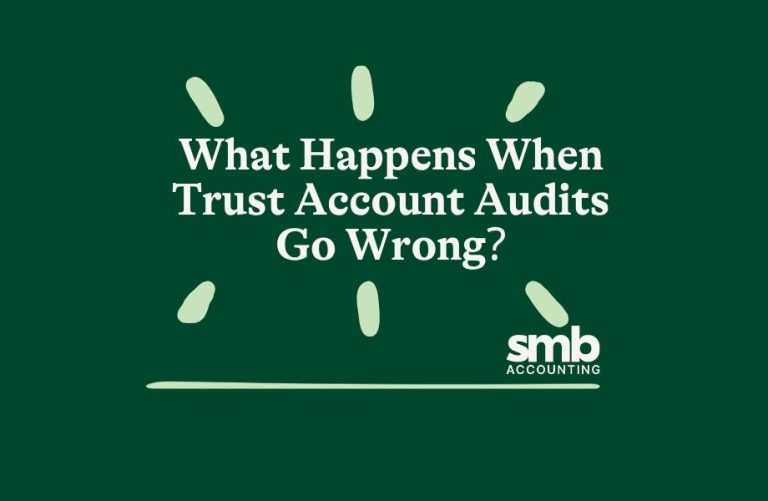Trust accounts are vital in managing client funds across various industries, ensuring money is handled responsibly and transparently. Because trust accounts deal with significant financial responsibilities, regular audits are crucial. These audits help maintain trust and credibility, ensuring funds are managed according to legal standards.
This article will delve into the key aspects of trust account audits, providing the knowledge you need to navigate them effectively.
The Importance of Trust Account Audits
Trust account audits are crucial for maintaining the integrity and transparency of a business’s financial practices. These audits ensure that funds held in trust are adequately managed, safeguarding the interests of clients and stakeholders. By conducting regular audits, businesses demonstrate their commitment to accountability and ethical financial management.
One primary reason trust account audits are essential is legal compliance. Various industries require strict adherence to financial regulations, and audits help verify that businesses meet these standards. They act as a form of oversight, ensuring that funds in trust are accounted for and used appropriately. This is vital in preventing fraud or mismanagement, which could lead to severe legal consequences.
Additionally, trust account audits protect client funds. Clients place their money in trust, expecting it to be handled carefully and diligently. Audits provide reassurance that their funds are secure, increasing their confidence and loyalty. This protection prevents financial discrepancies and builds a stronger relationship between businesses and their clients.
Regular audits also offer businesses a chance to refine their financial practices. Businesses can implement corrective measures by identifying weaknesses or errors, enhancing overall efficiency. Thus, trust account audits are fundamental to sound financial governance, benefiting both businesses and their clients.
Requirements and Process of Trust Account Audits
Conducting a trust account audit involves several key requirements and a well-defined process. Understanding these elements ensures the audit runs smoothly and fulfills its purpose of validating financial accuracy and compliance.
The initial requirement for a trust account audit is robust record-keeping. Businesses must maintain detailed records of all transactions, including receipts, disbursements, and account statements. Accurate records provide the foundation for auditors to verify the integrity of the trust account.
Auditors typically follow a structured process to perform an audit. It begins with planning, where the auditor reviews previous audits and identifies key areas to focus on. Next, they gather information, examining documents and financial transactions related to the trust account. This stage includes verifying that all entries are accurate and compliant with relevant laws and regulations.
The audit process also involves testing internal controls. Auditors assess the effectiveness of a business’s financial controls, ensuring they are adequate to prevent errors or fraudulent activities. This assessment helps identify areas where internal controls might need improvement.
Finally, auditors summarise their findings in a report. This document outlines any discrepancies or compliance issues and offers recommendations for improvement. By following this comprehensive audit process, businesses can ensure their trust accounts are managed efficiently and comply with legal standards.
Common Challenges and How to Overcome Them
Navigating trust account audits can be challenging, with various issues arising. Recognising these common challenges and knowing how to address them can help ensure a smoother audit experience.
One frequent issue is inadequate record-keeping. When businesses fail to maintain accurate and complete records, it becomes difficult for auditors to verify transactions and balances. To overcome this, businesses should implement efficient record-keeping systems. Accounting software like Xero can help automate and organise transactions, reducing errors and improving data accuracy.
Another challenge is the lack of understanding of regulatory requirements. To ensure compliance, businesses must stay updated with the latest trust account rules and standards. Regularly training staff and consulting with accounting experts can help bridge this knowledge gap, making compliance more manageable.
Time management is also a common hurdle. Preparing for an audit can be time-consuming, especially without proper planning. Businesses can overcome this by setting aside time for audit preparation, breaking tasks into manageable chunks, and ensuring all necessary paperwork is ready well before the audit.
Choosing the Right Auditor for Your Trust Account
Selecting the right auditor for your trust account is a critical step that influences the effectiveness and accuracy of the audit. Several key considerations can guide this decision.
First, look for auditors with relevant experience and expertise in your industry. An auditor who understands your sector’s unique financial challenges and regulations can provide deeper insights and more accurate assessments.
Next, consider the auditor’s qualifications. Verify their certifications and membership with professional bodies such as CPA Australia, which ensures adherence to ethical standards and ongoing professional development.
Additionally, assess the auditor’s communication skills. An effective auditor should be able to explain complex financial concepts clearly and provide constructive feedback. This can facilitate a more collaborative audit process and help your business address any identified issues effectively.
Finally, evaluate the auditor’s reputation. Seek recommendations from other businesses or read reviews to understand the auditor’s track record and reliability. By carefully considering these factors, you can choose an auditor who aligns with your business needs and helps maintain trust account compliance.
Conclusion and Next Steps
Understanding the essentials of trust account audits is vital for any business that manages financial transactions on behalf of clients. By recognising the importance of audits, adhering to standard requirements, and addressing common challenges, businesses can ensure their operations remain compliant and efficient.
Thorough trust account audits safeguard client funds and enhance a business’s reputation for reliability and accuracy. They offer valuable insights into financial practices, highlighting areas for improvement and ensuring adherence to industry regulations. Selecting the right auditor further enhances this process, providing expert guidance and fostering a partnership that supports your business’s growth and integrity.
For businesses looking to optimise their trust account management, working with experienced professionals can make a significant difference. At SMB Accounting, we specialise in providing comprehensive audit services tailored to your needs. Let us help you navigate the complexities of trust account audits with confidence and precision. Reach out to our team to learn more about how we can support your financial assurance journey.




